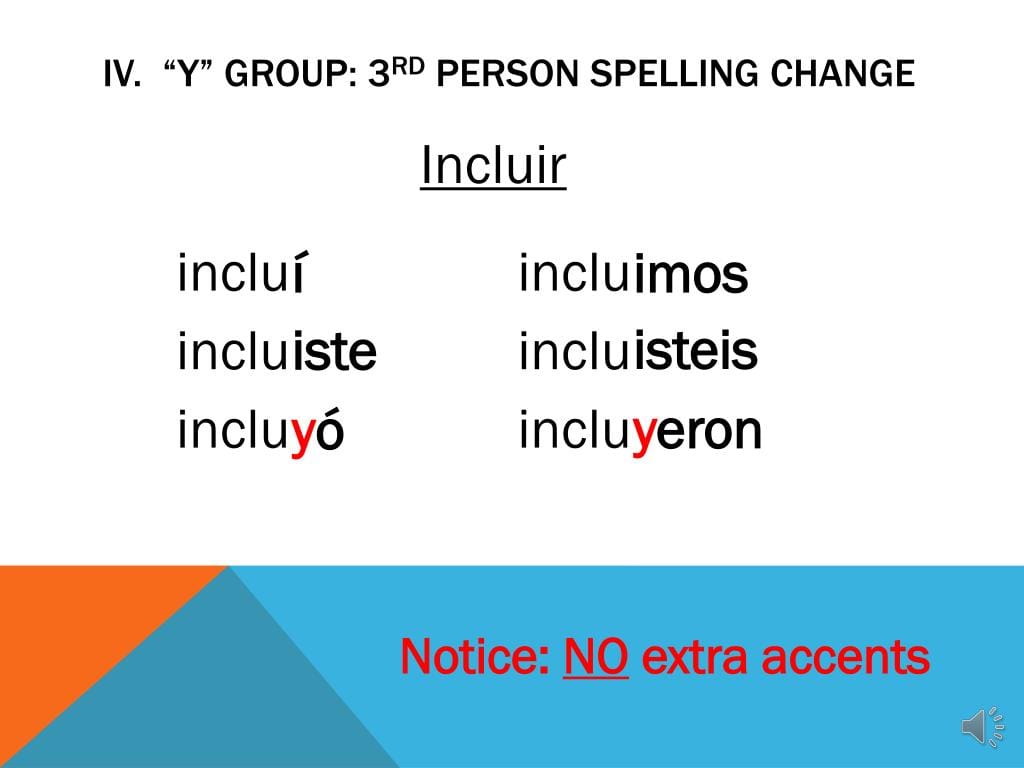Hey there, language buffs! Ready to unlock your Spanish storytelling powers? This guide dives deep into the world of the Spanish preterite, focusing on the sometimes tricky verb caer (to fall). We’ll break down its rules, explore its idiomatic uses, and equip you with the knowledge to confidently describe past events. Let’s conquer the caer preterite together!
Understanding Caer in the Past
The caer preterite describes completed falling actions in the past. It’s essential for narrating past events, but caer is irregular, meaning it doesn’t follow the typical -ar, -er, and -ir verb patterns. This guide will help you navigate these irregularities. For a deeper exploration of the preterite tense, check out our caer preterite conjugation guide.
Mastering Caer Conjugations
Conjugations tailor the verb to fit different subjects. Here’s how caer transforms in the preterite:
| Pronoun | Conjugation | Translation | Example |
|---|---|---|---|
| yo | caí | I fell | Caí por las escaleras. (I fell down the stairs.) |
| tú | caíste | you fell | Caíste de tu bicicleta. (You fell off your bike.) |
| él/ella/usted | cayó | he/she/you (formal) fell | Cayó dormido durante la película. (He/She/You fell asleep during the movie.) |
| nosotros/as | caímos | we fell | Caímos atrasados en el proyecto. (We fell behind on the project.) |
| vosotros/as | caísteis | you all fell (informal Spain) | Caísteis en su truco. (You all fell for his trick.) |
| ellos/ellas/ustedes | cayeron | they/you all fell | Cayeron enamorados a primera vista. (They fell in love at first sight.) |
Notice the accent marks? They’re crucial for correct pronunciation. Also, the ‘i’ in caer shifts to a ‘y’ in the third-person forms. These subtle changes are key to mastering the preterite.
Putting Caer into Action
Let’s see the caer preterite in action. Ayer, ella cayó en la alfombra. (Yesterday, she fell on the rug). Cayó clearly depicts a completed past event. Another example: Nosotros caímos en la nieve. (We fell in the snow). Again, a finished action in the past.
Beyond Literal Falls: Idiomatic Caer
Caer isn’t just about physical tumbles. It has idiomatic uses, like caer bien/mal (to make a good/bad impression). For example, Él me cayó bien (He made a good impression on me – literally, “He fell well to me”). This figurative use suggests our feelings about people can be as sudden as a physical fall. Some experts believe this adds depth and richness to the verb.
Practice Makes Perfect
Mastering the caer preterite takes practice. Try writing sentences, creating short stories, or using flashcards and online quizzes. Comparing caer with other irregular verbs may also be beneficial.
Conjugating Caerse: The Reflexive Form
Caerse (to fall down) is the reflexive form of caer, requiring reflexive pronouns (me, te, se, nos, os, se). These pronouns indicate that the action of falling happens to the subject. For a more comprehensive look at reflexive verbs, see our guide on caer vs caerse.
Here’s the caerse preterite conjugation:
| Pronoun | Conjugation | English Equivalent | Example |
|---|---|---|---|
| Yo | me caí | I fell down | Me caí en la calle. (I fell down in the street.) |
| Tú | te caíste | You fell down | Te caíste de la silla. (You fell down from the chair.) |
| Él/Ella/Usted | se cayó | He/She/You fell down | Se cayó del árbol. (He/She/You fell down from the tree.) |
| Nosotros/Nosotras | nos caímos | We fell down | Nos caímos en el hielo. (We fell down on the ice.) |
| Vosotros/Vosotras | os caísteis | You all fell down | Os caísteis de las escaleras. (You all fell down the stairs.) |
| Ellos/Ellas/Ustedes | se cayeron | They/You all fell down | Se cayeron al río. (They/You all fell down into the river.) |
Caerse specifically refers to falling down, while caer can describe various types of falling. This nuance is essential for natural Spanish.
Conjugating Caer in the Present Tense
Ready to tackle the present tense of caer? While it has a slight irregularity, it’s manageable. For additional help with conjugations, visit our caer conjugation page.
Present Tense Breakdown
Here’s the present tense conjugation of caer:
| Pronoun | Present Tense |
|---|---|
| yo | caigo |
| tú | caes |
| él/ella/usted | cae |
| nosotros/as | caemos |
| vosotros/as | caéis |
| ellos/as/ustedes | caen |
The Irregular “Yo” Form
The yo form, caigo, is the irregular one. Most -er verbs add -o to the stem, but caer adds -igo. This likely stems from historical pronunciation shifts.
Caer in Action: Present Tense Examples
Here are some examples of caer in the present tense:
- Caigo mucho cuando patino en hielo. (I fall a lot when I ice skate.)
- Las hojas caen de los árboles en otoño. (The leaves fall from the trees in autumn.) – Note the broader meaning of “to fall”.
Conjugating Caer Mal: Expressing Dislike
Caer mal (to dislike someone) combines caer with the adverb mal (badly). It’s a useful phrase for navigating social situations. For more on using caer mal, see our guide on how to conjugate caer mal.
Here’s the conjugation of caer mal in the present tense:
| Person | Conjugation | Example | Rough English Equivalent |
|---|---|---|---|
| Yo | Caigo mal | Me cae mal ese político. | That politician rubs me the wrong way. |
| Tú | Caes mal | ¿Te cae mal mi hermano? | Do you dislike my brother? |
| Él/Ella/Usted | Cae mal | Le cae mal la música ruidosa. | Loud music doesn’t sit well with him/her. |
| Nosotros/as | Caemos mal | Nos cae mal el nuevo vecino. | We don’t like the new neighbor. |
| Vosotros/as | Caéis mal | (Spain) Os cae mal esta película? | (Spain) Do you all dislike this movie? |
| Ellos/Ellas/Ustedes | Caen mal | Les cae mal la comida picante. | Spicy food doesn’t agree with them. |
Caer mal can express a range of dislike, from mild annoyance to stronger feelings. It’s generally informal, best suited for casual conversations. Some linguists suggest that using “caer” implies a more passive dislike.
This comprehensive guide provides a solid foundation for mastering caer. Remember, language is constantly evolving, so continued learning and exploration are always encouraged. Good luck on your Spanish journey!
- Unlock Elemental 2 Secrets: Actionable Insights Now - April 2, 2025
- Lot’s Wife’s Name: Unveiling the Mystery of Sodom’s Fall - April 2, 2025
- Photocell Sensors: A Complete Guide for Selection and Implementation - April 2, 2025

















1 thought on “Conquering the Caer Preterite: A Comprehensive Guide to Avoiding Common Mistakes”
Comments are closed.